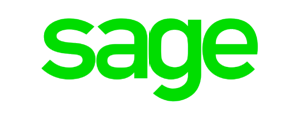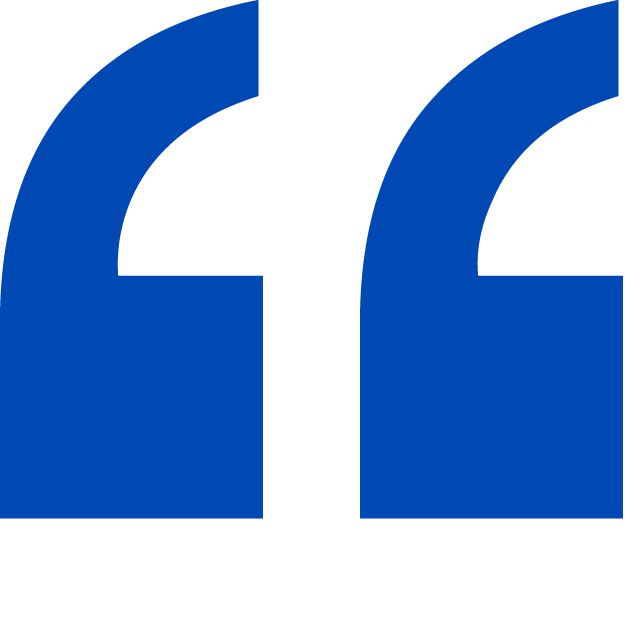Are you considering opening and owning a gym business and making 2018 the year you make your dream happen? You’re not alone.
According to the 2017 State of the UK Fitness Industry Report, 272 new private and public gyms opened in the 12 months to March 2017.
9.7m people in the UK are now gym members, an all-time high penetration level of 14.9%. With more than 300,000 paid-up fitness fanatics each year, the industry is now worth £4.7bn.
And this growth is predicted to still be going strong in the future: the total number of gyms should reach 7000 in 2018 with membership expected to surpass 10m.
If you fancy a piece of the action and are asking yourself “is owning a gym a good business idea?”, explore our ten facts and work out if it’s the right decision for you.
1. Do A Reality Check
 Before searching for premises or browsing through equipment websites, give yourself a strict reality check.
Before searching for premises or browsing through equipment websites, give yourself a strict reality check.
Opening and owning a gym business isn’t a walk in the park. It requires the right mindset, the right skills and the right finances. Setting up any business from scratch is hard work: it takes time, commitment and money. If it’s simply not feasible, then you risk all your efforts being a waste of energy.
So, before tackling your business plan, ask yourself the following questions:
- Am I truly passionate about health and fitness?
- Am I experienced and qualified enough to go it alone?
- Am I comfortable taking risks?
- Can I raise the necessary capital to fund my plans?
- Do I have the right attitude and motivation to dedicate all my time and energy into making it a success?
- Do I have, or am I willing to learn, crucial business, financial and marketing skills or will I need to pay for professional advice or outsource some tasks?
If you pass your reality check with flying colours, congratulations – it sounds like you have the strong combination of skills, experience and determination needed to start running a gym business.
2. Carry Out Rigorous Research
Thorough research is worth its weight in gold. Do it right and it will inform your business plan, creating a credible document that can be used as a vital reference tool for you and proof of your serious intent and professionalism for potential investors.
Do it wrong and you’ll be entering the unknown unprepared and risking failure before you’ve signed up your first client.
Devour every piece of information you can find online, speak to independent owners in other towns and cities about running a gym business, and get out into the world to reach potential clients.
Your research and subsequent business plan needs to cover several key points:
- Your services – what exactly will your gym business offer? Do you have a USP?
- Your objectives – set yourself goals to illustrate how you’ll measure success
- Your audience – show evidence of market research into demand and target clients. What do they want and how much are they willing to pay for it?
- Your competitors – who are they, where are they, how many are there and what do they offer?
- Your costings – include start-up and ongoing expenditure, profit and loss predictions, cashflow forecast and a break-even analysis.
3. Focus on Finance
 Money might not be your strong suit but you need to get savvy fast: quite simply, cash will make or break your business.
Money might not be your strong suit but you need to get savvy fast: quite simply, cash will make or break your business.
If you can start a gym for under £50,000 – £100,000, you’ll be off to a great start. Your budget needs to cover the initial outlay on equipment, marketing and your chosen bricks and mortar.
Apart from a tempting selection of treadmills, cross trainers, bikes and weights machines, clients will need mats, mirrors, TVs, music systems, lockers, showers, changing facilities, maybe even a sauna and steam room.
You also need to think beyond the obvious: ongoing expenditure such as insurance, utilities, rent and staff wages will all need to be accounted for.
And once you’re up and running, juggling these expenses with your income will require careful management if you don’t want to fall victim to cash flow challenges.
Offering your clients the chance to pay their membership fees by Direct Debit will take much of this weight off your shoulders. You can outsource the job of collecting recurring payments from them to a bureau such as FastPay.
Instead of waiting for cheques to clear or credit card payments to be made, a straightforward, reliable Direct Debit scheme will mean monthly fees will arrive in your account exactly when you expect them.
Your cashflow will then be free to do what it should: flow.
4. Learn the Legalities
Running a gym business isn’t just a case of filling a room with equipment and inviting people to use it, you are responsible for those premises and those people.
To cover all your legal requirements, it’s recommended to consult a specialist insurer who can advise on the best policy for you and your business.
To be prepared for any eventuality, you’ll need at least employer’s liability insurance before recruiting staff and professional indemnity insurance in case of allegations of poor advice or inadequate service. Whatever policy you choose, ensure you’re aware of exactly what is and isn’t covered.
Your health and safety standards will also need to be up to scratch. Keeping on top of equipment maintenance, ensuring all flooring is non-slip and paying great attention to cleanliness are all important to your gym’s success.
5. Be A Marketing Maestro
A shiny new gym is useless without the sounds of feet pounding on treadmills and weights clanging on bench presses.
An empty gym will soon mean an empty bank account, so getting to grips with your marketing should be one of your big priorities. If you feel like you’re punching above your weight, you can always outsource the job but this will, of course, be an added expense.
Your reputation and word-of-mouth will stand you in good stead but is unlikely to be enough. You’ll need a brand, a name, a logo, a website, signage, social media accounts, carefully-targeted ad campaigns, strong community contacts and an ongoing plan to retain and attract clients.
To get fitness fanatics through your doors, your sales and marketing strategy needs to be comprehensive. Your aim is to persuade them to either leave the gym they use now or to embark on a new exercise regime and then choose you to achieve their goals.
When targeting the former, you need to coax them over with a good deal as well as excellent customer service.
Direct Debit can give you a helping hand on both these counts.
Its flexibility allows you to offer a discount if clients sign up before a specific date, for example two weeks after you open. You can quote a yearly membership fee and a monthly Direct Debit amount so they know exactly how much they’ll be paying and when.
This kind of financial incentive can set you apart from the competition and establish your client base before you’ve even opened, firming up your cashflow and easing the setting-up pressure.
Offering the option to pay by Direct Debit will be welcomed by your client as an easy, reliable and secure way to pay their membership fees. They’ll be reassured that their payment is being taken automatically and is one less thing to worry about in their busy lives.
6. Consider a USP
 You’ll have your work cut out if you try to compete with the big gym guys: their buying power and marketing budgets are as fighting fit as some of their clients.
You’ll have your work cut out if you try to compete with the big gym guys: their buying power and marketing budgets are as fighting fit as some of their clients.
If your strategy for running a gym business includes a target audience of “anyone who wants to get fit” and services that try to please everybody, your plans could stumble at the starting block.
The alternative is to find your USP and target a niche market. Choosing to specialise as a women’s only gym, a powerlifters’ paradise or a bodybuilders’ hang-out could draw dividends.
Instead of having to find and pay for premises large enough to cater for a broad range of clients, along with fitting those premises out, you’ll have the opportunity to be the expert in your field. Running a destination gym will mean fewer competitors, lower start-up costs and a simplified marketing strategy.
Before taking the USP plunge, make sure your research justifies your choice: demand and location both need to back up your decision.
7. Diversify Revenue Streams
When considering the question “is owning a gym a good business?”, ask how you can boost your income by offering more than just membership.
Successful gym operators recognise that revenue can have seasonal ups and downs: the first few months of the year are a flurry of activity while summer can be quieter as holidays and good weather lure clients away from the cross trainer.
Your gym’s bottom line could be boosted by selling products such as water bottles, towels, gymwear or protein shakes. Your premises may be large enough to hire out space privately for freelance instructors. Or you could have a small café or juice bar to keep your clients fed and watered.
These little extras could help you to ride the potential ups and downs of membership levels while acting to make your cashflow more comfortable.
8. Beware the Common Pitfalls
Your enthusiasm for helping your clients achieve their best can’t blind you to some of the common pitfalls faced when opening and owning a gym business.
Spending too much time training clients and not enough on actually running the business behind the scenes will set you up for a fall.
One of the biggest challenges is keeping on top of your accounting. As a small business, you’re unlikely to be in a position to afford a dedicated finance officer. Instead, you can use a Direct Debit bureau such as FastPay as your credit control department.
They’ll take care of the day-to-day management of your clients’ recurring payments. Their software can easily be integrated with yours, as well as with platforms such as Xero and Sage, to create a streamlined system and seamless payment journey.
You’ll receive regular reports detailing the status of all client payments and highlighting any issues such as failed or cancelled Direct Debits. This speedy, efficient communication means that you can address any unexpected payment problems with minimum hassle.
9. Keep Your Clients Smiling
 While your clients see their fitness levels improving, you’ll see your customer satisfaction levels rocket thanks to Direct Debit.
While your clients see their fitness levels improving, you’ll see your customer satisfaction levels rocket thanks to Direct Debit.
Its value to them is unrivalled. They’ll know that, after completing a short mandate, their membership fees are being paid automatically. No need to dig out a cheque book, set up a Standing Order or make a credit card payment online or on the phone.
As the ultimate fast finance solution, Direct Debit means they’ll never receive a late penalty notice from you and won’t unexpectedly go into their overdraft because you’ve cashed their cheque on an inconvenient day.
They’ll also be reassured that they’re protected by the Direct Debit Guarantee’s comprehensive range of safeguards. Its stringent levels of security make it the most secure form of payment available, making the chances of fraud highly unlikely.
The convenience and peace of mind they’ll enjoy will make their lives easier and their opinion of your business fly.
10. Enjoy the Business Benefits
There’s no denying it, opening and owning a gym business is a gamble. It’s estimated that around four in ten businesses fail after five years.
One of the main reasons for this dramatic figure is compromised cashflow. To help yours stay as fit as a fiddle, team up with FastPay and you won’t ever have to deal with chasing late payments.
Your clients will be signed up to pay you on a regular basis, replacing uncertainty with reassurance and reducing the risk of cashflow disruption.
Direct Debit also has a positive impact on customer loyalty and retention. By offering them the most efficient and flexible payment method available, they see you as a helpful, hassle-free company. They trust that you will take the right amount from their account at the right time and that you’ll inform them of any changes to their payment plan.
Starting any business is a challenge. Sign up to a Direct Debit bureau and make collecting recurring payments from your gym members a reliable, secure and pain-free process. It’ll be a weight off your mind.












